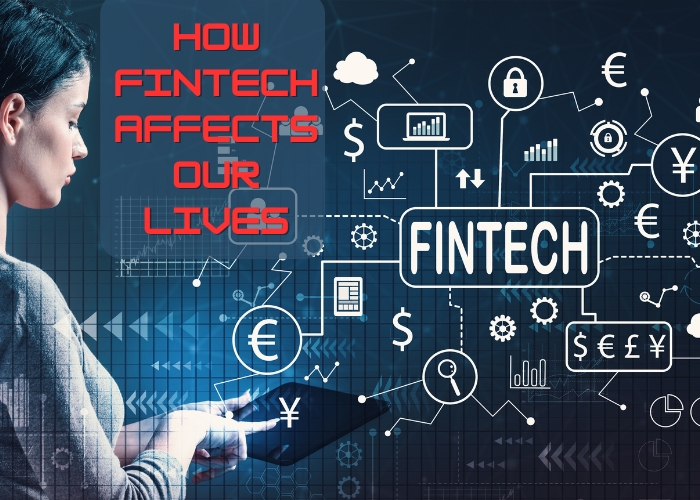Fintech or financial technology is rapidly transforming standard finance solutions to become more rapid, easy, accessible, and approachable. It, therefore, depends on cutting-edge goods and services to do this. Fintech gives customers more significant influence over their financial decisions, leading to an increase in financial literacy.
Fintech, or financial technology, thus, combines traditional bank services with state-of-the-art digital technology and Big Data solutions to simplify the lives of bank customers.
The different varieties of Fintech and the skills needed to operate in the field will be covered in this overview. It also covers the employment outlook for several fintech jobs. Attending an extensive digital fintech camp is the most effective way for aspiring fintech experts to obtain real-world experience. Financial Technology (Fintech): Its Uses and Impact on Our Lives, we will talk about it here:
Fintech: What Is It?
The term “fintech,” which stands for “financial technology,” refers to integrating technology into financial services or processes to improve or automate them.
More widely, “fintech” also refers to a quickly expanding sector that benefits companies and consumers in various ways. Fintech offers a seemingly limitless range of uses, from cryptocurrencies and investment apps to mobile banking and insurance.
ESSENTIAL NOTES (Fintech: Its Uses and Impact on Our Lives)
Fintech is the term for applying technology to financial services firms’ offerings to enhance customer use and delivery. It mainly functions by breaking down the packages these companies offer and opening up new markets. Fintech-using businesses in finance have increased financial inclusion and reduced operating expenses through technology. Fintech funding is increasing, but there are still issues with regulations.
Robo-advisors, payment apps, peer-to-peer (P2P) lending apps, investment apps, and cryptocurrency apps are a few examples of fintech applications.
Knowing Fintech
Any advancement in how people do business, such as creating digital currency or double-entry accounting, can be categorized as “financial technology.” Financial technology has grown at an exponential rate since the Internet revolution.
You may make everyday use of some aspect of Fintech. You can transfer funds from your debit account to your checking account via your iPhone, send money to a buddy using Venmo, or manage your investments via an online broker, to name a few. Two-thirds of customers use two or more fintech services, and they are becoming more conscious of Fintech in their everyday lives, according to EY’s 2019 Global FinTech Adoption Index.
How Fintech affects our lives!:-

Fintech: Its Uses and Impact on Our Lives, has completely changed how we use money, financial services, and the economy as a whole. Below is a summary of its applications and how it affects our lives:
Payment Processing:
Fintech has revolutionized how we make payments. With just a few taps on a smartphone, people and organizations can transfer money quickly with the help of mobile payment apps like Square Cash, Venmo, and PayPal. Compared to more conventional techniques like checks or wire transfers, this has made transactions quicker, more convenient, and frequently less expensive.
Online Banking:

Fintech and online banks seriously threaten traditional brick-and-mortar banks. Features like lower costs, better interest rates on savings, round-the-clock account access, and user-friendly mobile apps are all provided by online banking services. This change allows customers to manage their funds more efficiently and effectively.
Peer-to-peer Lending:
Peer-to-peer lending has been made possible by fintech platforms, which link borrowers and investors online. This has enabled people and small enterprises needing help getting loans from traditional banks to access new lending sources. Peer-to-peer lending frequently has easy application procedures and competitive interest rates.
Robo-Advisors:
Through the introduction of robo-advisors, which employ algorithms to offer automated, low-cost investment management services, Fintech has democratized investing. These platforms provide tailored investment plans according to time horizon, financial objectives, and risk tolerance. The need for pricey human financial advisors has decreased, and investment is now more accessible to average individuals thanks to robo-advisors.
Blockchain and Cryptocurrency:
Payments, remittances, and smart contracts are just a few of the financial aspects that blockchain technology, the technology at the core of cryptocurrencies like Bitcoin and Ethereum, has the potential to transform. Notwithstanding their volatility and regulatory difficulties, cryptocurrencies provide a fresh method of conducting financial transactions and have attracted much attention from investors and developers.
Regtech, or regulatory technology:

Fintech also includes regulatory technology, or regtech, which uses technology to make it easier and more efficient for financial firms to comply with rules. Regtech solutions assist in lessening the regulatory burden on financial institutions while increasing openness and accountability. They automate compliance processes, monitor transactions for suspicious activity, and protect data security and privacy.
What kinds of Fintech are there?
Fintech has been used in numerous financial domains. These are but a few instances. Robo-advisors are applications or web-based platforms that automatically invest your money in the best possible ways, frequently at minimal cost, and are available to regular people. Buying and selling stocks, exchange-traded funds (ETFs), and cryptocurrencies from your mobile device is made simple by investing apps like Robinhood, frequently with little to no commission.
You can quickly and easily make online payments to individuals or businesses through payment programs like PayPal, Venmo, Cash App, Square (Block), and Zelle.
Apps for personal money like Quicken, YNAB, and Mint With Simplify, you can create budgets, pay bills, and manage your finances in one location.
Peer-to-peer (P2P) lending platforms, such as Upstart, LendingClub, and Prosper Marketplace, facilitate loans to people and small company owners from various contributors who provide micro loans directly to them.
You can retain and conduct transactions in cryptocurrencies and digital tokens like Bitcoin and non-fungible tokens (NFTs) via cryptocurrency applications, such as wallets, exchanges, and payment processors.
Insurtech refers to the use of technology, especially in the insurance industry. One example is using gadgets to track your driving and modify your auto insurance prices.
Conclusion:
Fintech has dramatically improved our lives by making money management more straightforward, accessible, and effective. However, it also presents difficulties related to data privacy, cybersecurity, and regulatory compliance.

